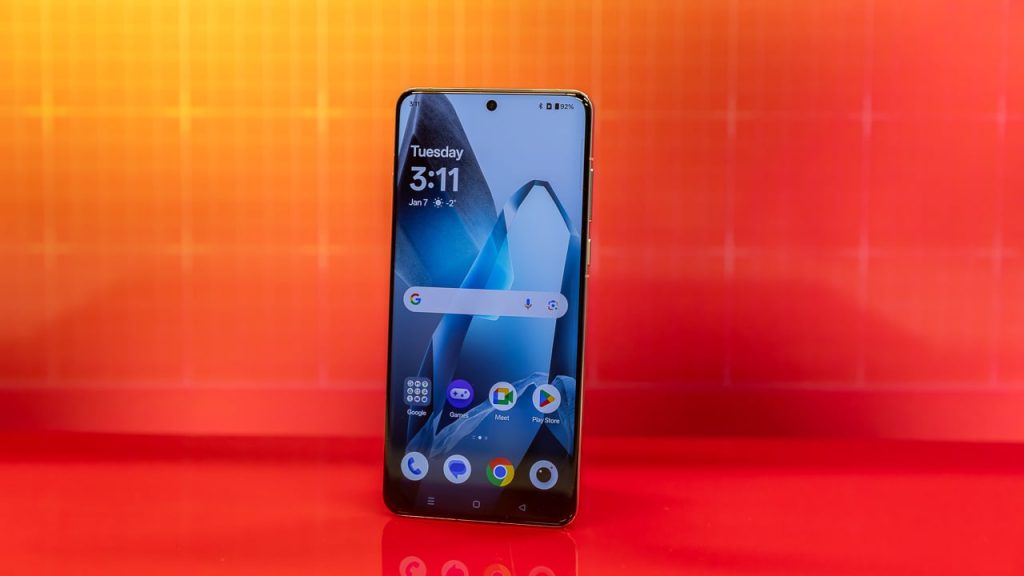
While there’s a robust global market of smartphone manufacturers, in the U.S., most people are probably rocking something made by Apple, Samsung, or Google. Those companies all make totally fine flagship phones, but if you want an alternative, OnePlus 13 might be the one for you.
The latest handset from OnePlus is, if nothing else, proof that the Chinese company can hang with the big boys. To be fair, plenty of previous OnePlus phones have more or less proven that too, but the case has never been more convincing than it is now. The $899 OnePlus 13 gives you nearly everything you’d want from a modern flagship, including excellent performance, a pretty display, some AI features if you’re into that sort of thing, and one of the best smartphone batteries I’ve ever seen.
OnePlus 13: Specs
Starting at $899, here’s what you get when you shell out for a OnePlus 13:
-
6.8-inch display
-
Snapdragon 8 Elite processor
-
12GB RAM
-
256GB internal storage
-
6,000mAh battery
Put simply, it’s a big flagship phone with big flagship specs. The Snapdragon 8 Elite processor is top-of-the-line, and is making its U.S. debut with OnePlus 13. It is widely expected to also power the upcoming Samsung Galaxy S25, so OnePlus technically beat Samsung to the punch here. For some extra cash you can bump the RAM up to 16GB or the storage up to 512GB, but unfortunately, there’s no 1TB option for the true storage sickos out there.
While OnePlus uses a proprietary operating system called OxygenOS, it was originally based on Android, and thus will be familiar to anyone who regularly uses Android phones. The latest OxygenOS build is clean, lacking in some of the up-front bloatware that used to plague these phones.
OnePlus 13: Display

Credit: Joe Maldonado/Mashable
One thing you’ll notice immediately upon picking up a OnePlus 13 is that the display is very nice. Its 3168×1440 resolution is sharp as hell, and its 4,500 nits of peak brightness make it a pleasure to look at in direct sunlight. The refresh rate is dynamic, oscillating between 1 and 120Hz to provide peak smoothness while preserving battery where it can.
There’s not much more to say about the display, really. It has everything you’d want from a flagship smartphone display. Considering my iPhone 16 is priced only $100 cheaper than OnePlus 13 and doesn’t offer anywhere near as much in terms of resolution or refresh rate, I’d say OnePlus has settled onto a good value here.
OnePlus 13: Design
Design is one area where I find OnePlus 13 to be a little questionable.
That doesn’t really have anything to do with the way it looks, though. While a 6.8-inch display means it’s a very large phone and thus will not be great for anyone with smaller hands, it’s at least stylish to the eye. It’s got a big, cool-looking rear camera module designed by the Swedish company Hasselblad, which is no longer awkwardly attached to the side of the phone by a big clamp-looking thing like it was on the last couple of OnePlus devices. It’s a free-floating camera module now, oriented to the left side of the phone, near the top of the rear end.

Credit: Joe Maldonado/Mashable
As for colors, your options are Midnight Ocean, Arctic Dawn, and Black Eclipse. In simpler terms: Dark blue, white, and black, respectively. OnePlus provided me with an Arctic Dawn model, and I do think it looks spiffy.
My issues with the phone’s design are almost entirely to do with OnePlus’s choice to use a microfiber vegan leather texture on the phone’s rear side. I’ll admit that this is a cool idea in theory. I’ve never used a phone that feels like this in the hands, and I’m sure plenty of people will like it. For me, though, it just feels kind of…greasy? There’s no actual moisture, but the leathery texture always makes it feel like it’s on the verge of slipping out of my hands, as if my fingers are sweaty, even when they’re not.
OnePlus 13: Performance
Thanks to the Snapdragon 8 Elite processor powering the OnePlus 13, I can’t really think of anything negative to say about the phone’s performance profile.
When it comes to daily use (which, for me, mostly manifests as social media and streaming music or videos), everything runs smoothly. Apps open and load quickly and I detected no amount of slowdown when trying to do a lot at once. I also appreciate that the phone never became warm on me, even while doing somewhat intensive battery testing.
If you want a more analytical approach to performance appraisal, the Geekbench 6 benchmarking software was also kind to OnePlus 13. Its multi-core CPU score was 9,092, which is more than 2,000 points higher than the Samsung Galaxy S24 Ultra, which came in at 6,782. That Snapdragon 8 Elite processor is the real deal.
OnePlus 13: Battery life

Credit: Joe Maldonado/Mashable
Having said all of that, by far the most impressive thing about the OnePlus 13’s performance is its battery life. It lasts so long that testing it for this review was actually more difficult than it usually is for smartphones.
I think you could easily start one day at 100 percent battery and make it well into the afternoon of the next day without plugging in if you wanted to. Evidence: I was able to do that. This thing simply refuses to die, unless you do what I did and loop an HD video in full screen until it dies. Using that method, I was able to wring 24 hours of continuous playback out of the OnePlus 13. Incredible.
If that’s not enough, it also charges unbelievably fast, provided you use the included cable and wall adapter. Just half an hour of charging will probably get you through a full day.
OnePlus 13: AI features
Yes, the OnePlus 13 brings some AI features to the fold that weren’t present in previous OnePlus devices. Full disclosure: I hate most of the things we call “AI” these days. I made it clear when I reviewed the Google Pixel 9 last year that “magic” text and photo editing tools that use generative AI actually cheapen the experiences of written communication and photography. Unfortunately, OnePlus packed in a handful of AI features that are more or less identical to what I was talking about back then.
For instance, you can have AI clean up or reformat text in your notes or text messages. Ho-hum. Every phone can do that now, plus you should really be able to write your own text messages if you’re an adult. Circle to Search is also here, which is one of the few AI features that is actually useful and practical.

Credit: Alex Perry/Mashable
Credit: Alex Perry/Mashable
Most of the AI features are in the realm of photo editing. You can circle or highlight objects in photos to have objects erase them, just like on Pixel phones. This worked OK in my brief testing, though it inexplicably couldn’t remove an object that should have been easily removable in one photo. “Magic Unblur” supposedly removes motion blur from photos, but I had a hard time getting it to make much of a difference.
The same goes for “AI Detail Boost,” which is supposed to sharpen images and make them look better. When I tried this, the end results were nearly indistinguishable from the original photos. Your mileage may vary. I don’t necessarily want to sound like a Luddite, but the increasing encroachment of these features that make everything look too perfect and fake doesn’t make me feel good.
OnePlus 13: Cameras
The aforementioned Hasselblad camera array on the rear end of the OnePlus 13 includes a trio of lenses, in the wide, ultrawide, and telephoto variety. All three measure in at 50MP, which is nice and simple.
In practice, photos taken on the OnePlus 13 using default settings look fine. You’ll have to excuse how grey and gloomy New York City was during the testing period. I found that shots generally looked sharp and pretty, if a little unnaturally vibrant compared to what my eyes were actually seeing at times.

Credit: Alex Perry/Mashable
The zoom lens is able to produce impressive levels of clarity from far away, though I would point out that you can see the software fudging some details if you look closely enough.

Credit: Alex Perry/Mashable
One issue, which is consistent with my experiences using previous OnePlus phones, is that nighttime shots often look like they have studio lighting on them or something. They’re simply too bright for my taste. Yes, you can see what’s happening in them better than you could prior to software-enhanced nighttime photography, but it doesn’t look anything like what I saw with my eyes.

Credit: Alex Perry/Mashable
Still, aside from that, it’s a good set of smartphone cameras. Macro photography allows you to get high amounts of detail on small objects, for instance.

Credit: Alex Perry/Mashable
And, as always, portrait mode can create a nice bokeh effect when you need it.

Credit: Alex Perry/Mashable
OnePlus 13: Final thoughts
By most of the metrics that matter, OnePlus 13 is an excellent smartphone. For $899, you get a vibrant display, AI features that at least have some parity with the competition, one of the best smartphone batteries ever, and top-level performance.
Personally, I wouldn’t call the OnePlus 13 cameras a selling point on their own, even though they’re perfectly fine. Beyond that, I don’t love its vegan leather back texture, and I still have major qualms with all of the AI creep in our lives. But if you need a new Android (or Android-like) phone and want to get out of the Apple/Google/Samsung bubble, this is probably the way to do it.






